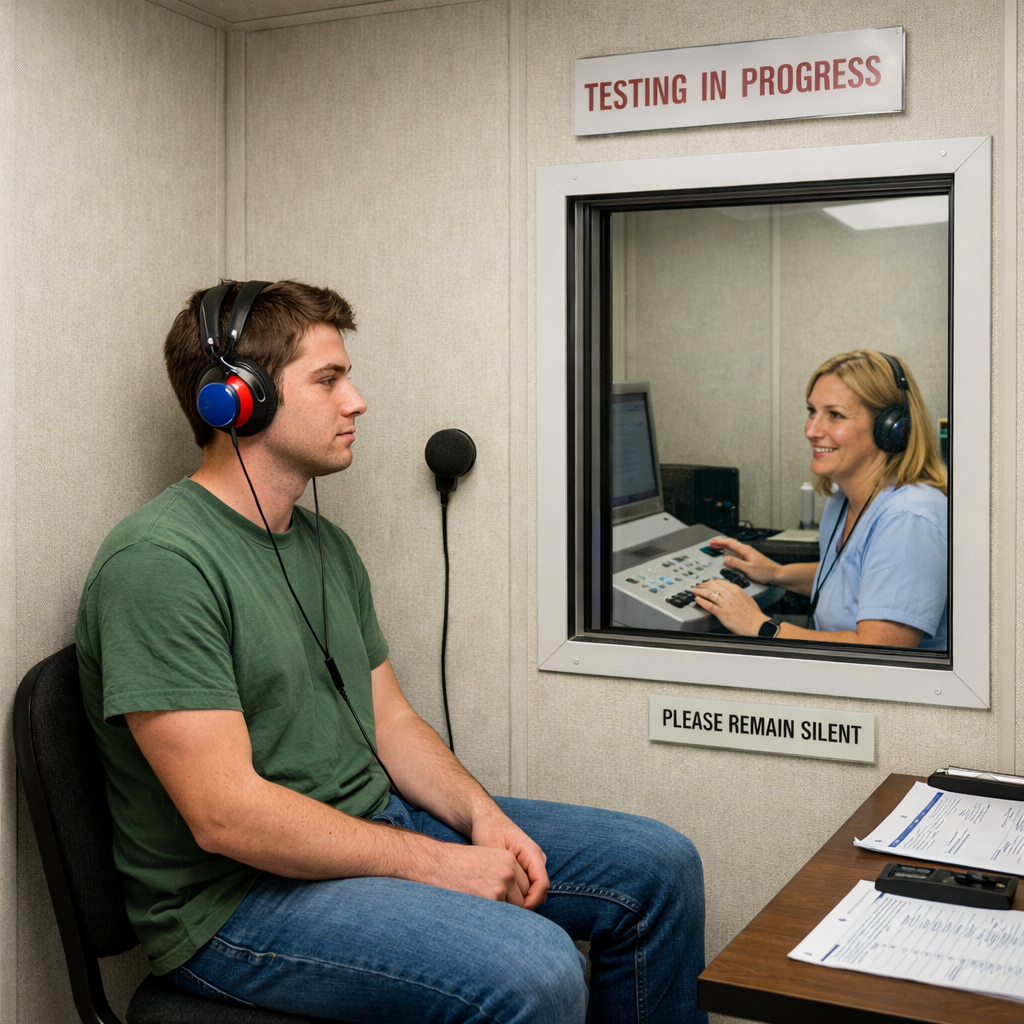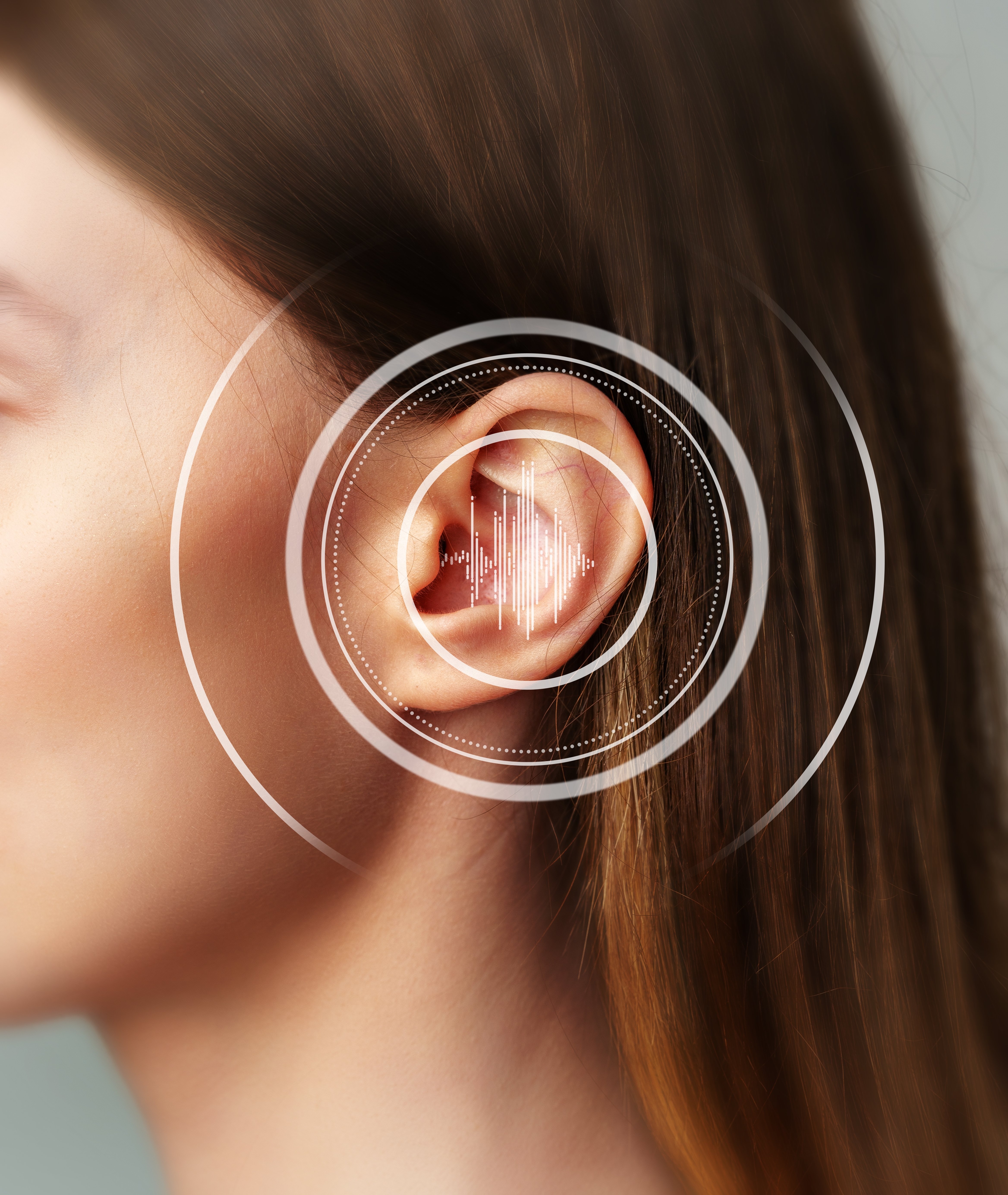Full-time Hearing Using Your Own Ear:
The Esteem® fully implanted* active middle ear implant (FI -AMEI) is the first and only FDA-approved, completely internal hearing device for adults diagnosed with moderate to severe sensorineural hearing loss.
*Once activated, the external Esteem Personal Programmer is not required for daily use.

What sets the Esteem implant apart from other hearing solutions?
- No External Components: The Esteem implant does not require any external components to be worn in the ear canal or elsewhere for hearing.
- Innovative Sensor Technology: Our novel implanted piezoelectric sensor uses the ear’s natural anatomy to capture sound as it enters the outer and middle ear, avoiding the artificial distortion often associated with external microphone technology found in traditional hearing devices like hearing aids and cochlear implants.
- No Daily Maintenance: No cleaning, charging, or daily adjusting.
- Continuous Hearing 24/7: Users can experience uninterrupted, day and night.
- Multi-Year Battery Use Without Charging: **.
- Waterproof Design: The Esteem's waterproof* design supports worry-free living, accommodating an active lifestyle, and is functional up to a depth of 33 feet.
*The Esteem implant is waterproof to a depth of 33 feet, the External Personal Programmer is not waterproof.*The battery life may be reduced to 2.8 years if continually exposed to very loud sound levels using the highest gain settings.
The Esteem Implant
The Esteem implant is the world’s first and only completely internal* hearing device that works with your ear’s anatomy to let sound in similar to the way nature intended. Unlike hearing aids, which use an artificial microphone, the Esteem technology uses the eardrum as a microphone allowing the ear canal to remain open. The device’s three components work together with the ear's anatomy to let sound in similar to the way nature intended.
- Esteem Sensor
- Esteem Sound Processor
- Esteem Driver
*Once activated, the external Esteem Personal Programmer is not required for daily use.
The Esteem Implant's Natural Hearing
Sound enters your outer ear and funnels down your ear canal causing your eardrum to vibrate. All as nature intended.
- The Esteem Sensor then converts the vibrations into electrical signals that are sent to the implanted Esteem Sound Processor.
- The Esteem Sound Processor receives, adjusts and intensifies the signals to fit your unique hearing needs.
- The Esteem Driver translates these customized signals to intensified vibrations. The vibrations are transferred to the inner ear where the cochlea cells are stimulated, causing you to hear in a way similar to the way nature intended.
- The external Personal Programmer lets you make adjustments for the specific hearing situation. (not shown)
Frequently Asked Questions
What do patients say?
Andrea
"After I got the [Esteem] implant, my life completely changed. I was finding myself going out in public more often, becoming much more social."

Andrea*
From Mom to Mrs. NebraskaImplantee for 18 years
Bryan*
"It's very difficult to swim with 5,000 other people and not be able to hear!"

Bryan
Business Director, Tri-athlete, Father of Two, CaliforniaImplantee for 18 Years
Amy**
“It’s changed how I interact with my kids, my community and really how I feel about myself, immensely. I feel like I have a new lease on life with this [the Esteem] device and I really, truly feel like I can do anything I want to do.”

Amy**
Mother of two Joins Envoy MedicalBilateral implanted - Left: 18 years, Right: 14 years
*The information presented or discussed is for general information purposes and may not be representative of all patient outcomes. It is not intended to substitute for professional medical advice and should not be interpreted to contain treatment recommendations. Each person’s situation is unique, and risks, outcomes, experience, and results may vary. Talk to your healthcare professional about which product or treatment may be right for you. Please see complete product instructions for use, including all product indications, contraindications, precautions, warnings, and adverse events. Please view important safety information www.envoymedical.com/safety-information. These individuals received the product through participation in a clinical trial and sharing their stories.
**Amy is an employee of Envoy Medical.
Trending on Our Blogs
We Don’t Live in Sound Booths
- Envoy Medical Staff Member
- March 1 2026
Hearing Loss and the Art of Staying Connected
- Envoy Medical Staff Member
- February 8 2026
New Year, New Advances: What's Coming Next in Hearing Health
- Envoy Medical Staff Member
- January 18 2026




